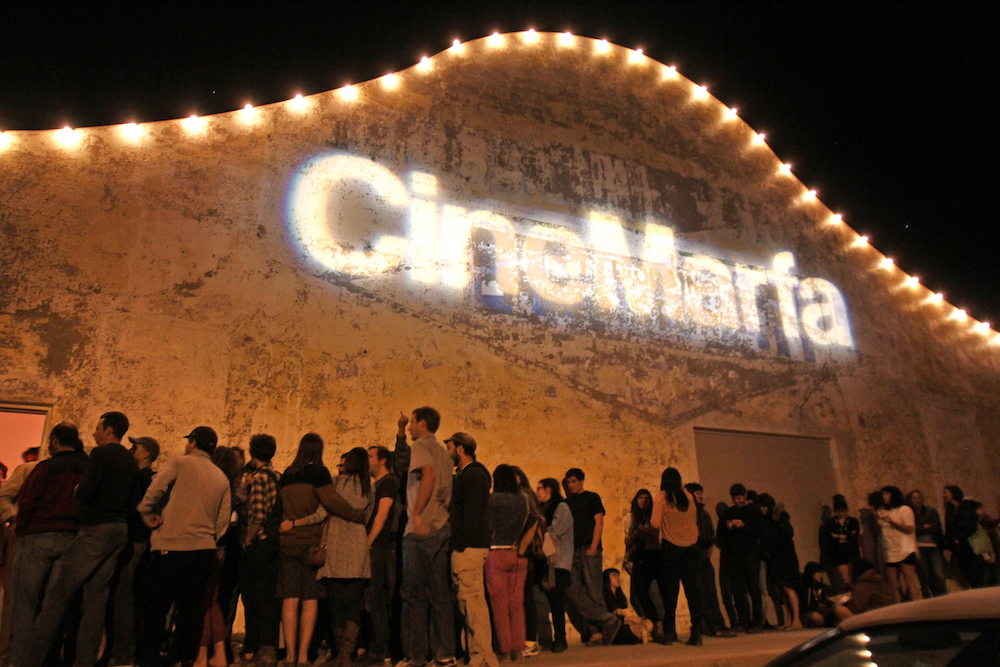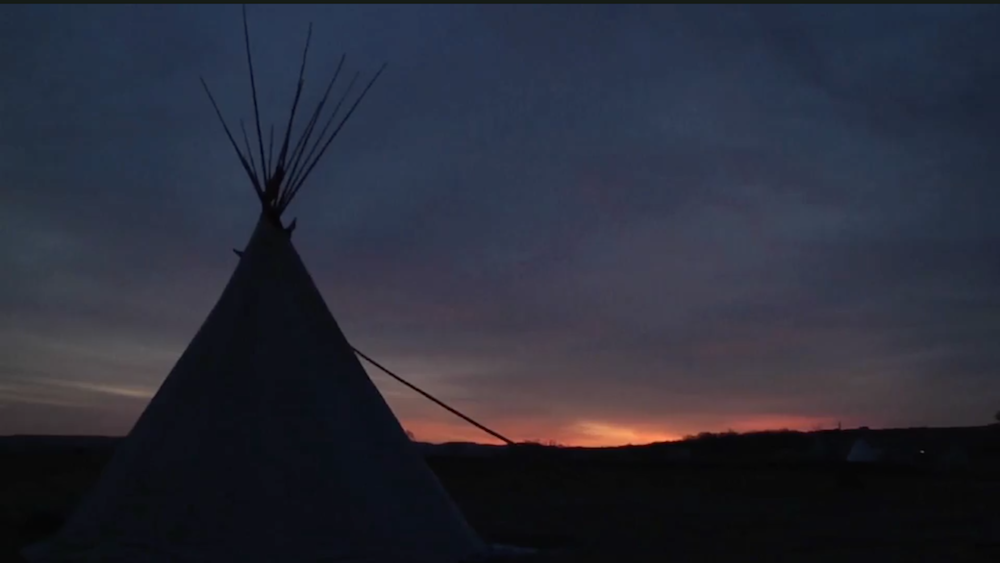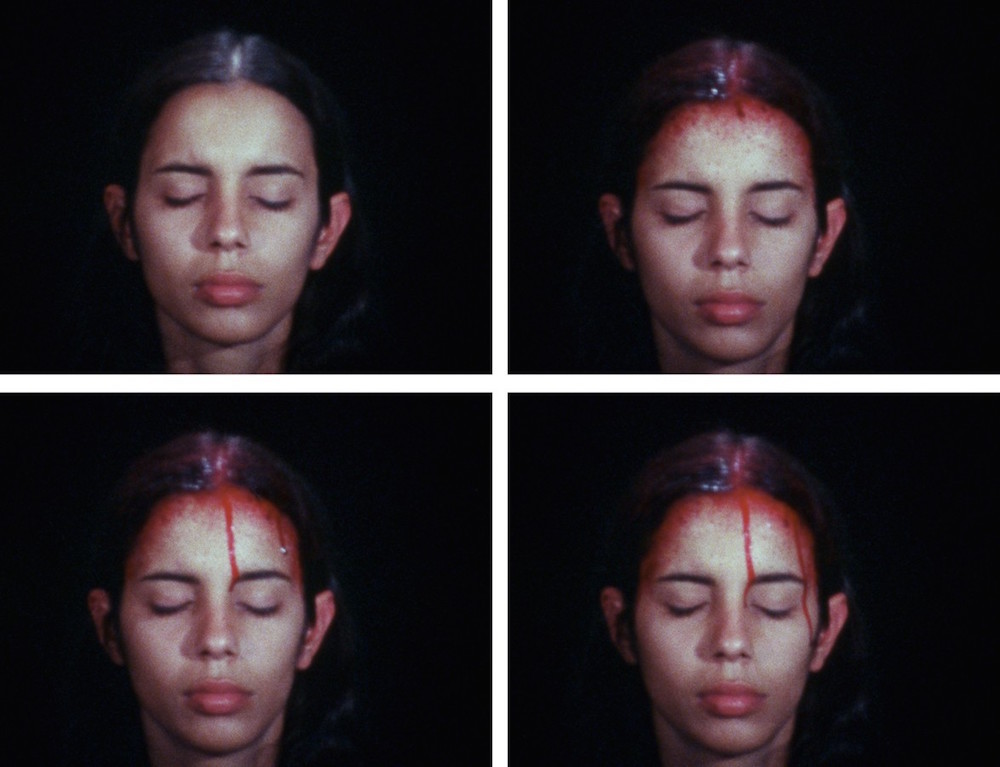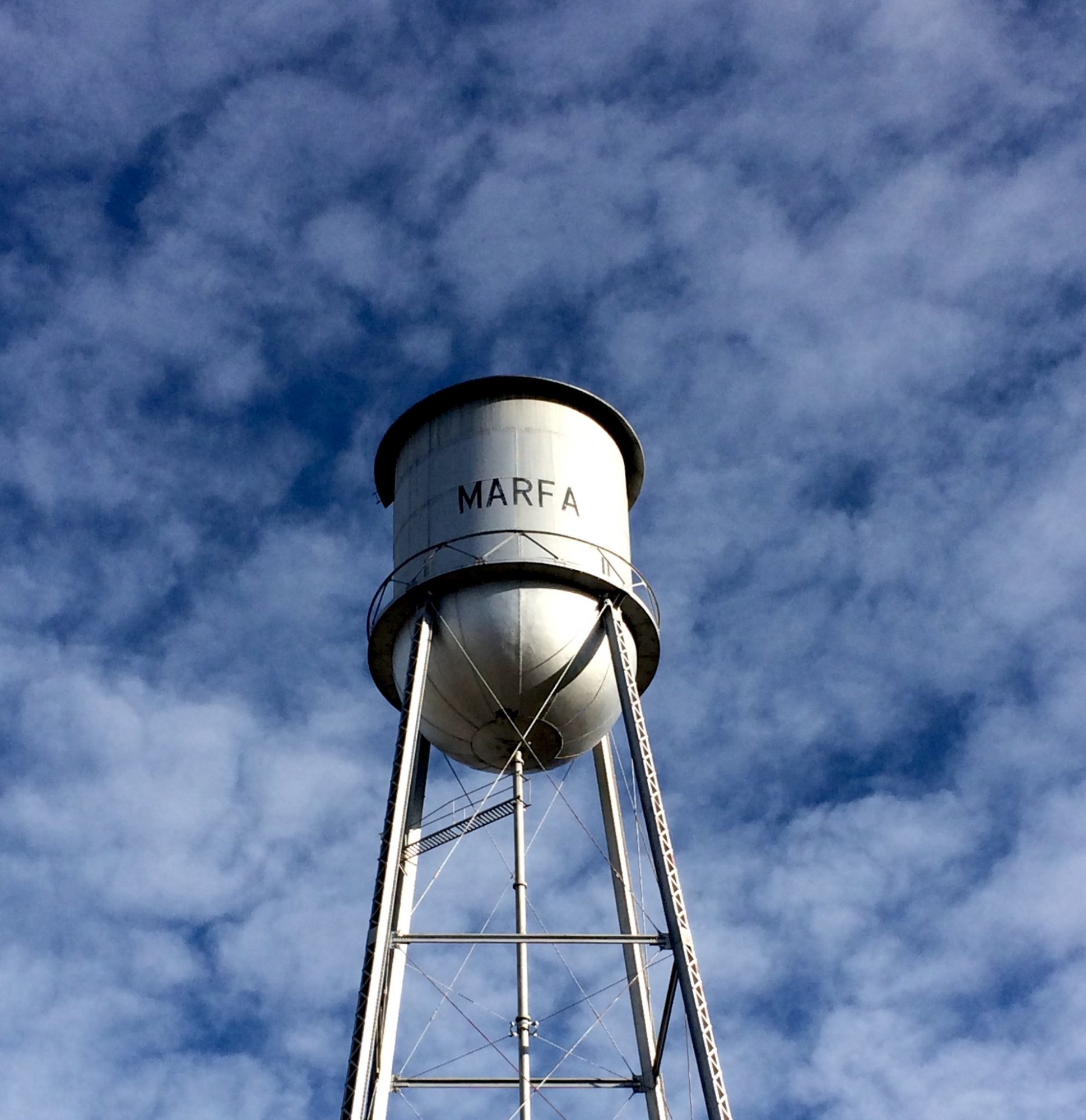As vast expanses of cinematic desert mix with galleries full of masterful minimalist works and a thriving art community, Marfa is a cultural mecca that looks like a William Eggleston snapshot of America. It is here that David Hollander, together with his partner Jennifer Lane and a handful of likeminded artists and industry friends, created CineMarfa.
The film festival, now in its 7th year, was founded “as much to create a kind of anti-film festival as anything else — as filmmakers we have found that the film festival industrial complex is one that can be really unsatisfying, largely because there’s the demand of submission fees and there’s a flattening of the work itself,” David says. “The market has a way of making the film feel disposable, but we were really thinking in these utopian terms about what would be the best experience for the filmmakers, and for the audiences consequently.”

Originally based in LA, David and Jennifer, who both work as producers for films made by fine artists, escaped to Marfa for the sort of reasons you’d imagine — to get out of the rat race and find somewhere they could focus on making the work they want to make. “After being there for a few years we connected with some other people who have a shared interest in the same kinds of films that we are into,” says David. Joining forces with a artists including Christopher Wool and Jeff Elrod, as well as associate director of the Chinati Foundation, Rob Weiner, they set up the not-for-profit festival with an aim to bring to audiences films that are hard to see, or even censored — films you’re unlikely to get a cinema showing. Marfa is the perfect setting: “being a place where you can go and see some pretty amazing art out in a very remote location, it seemed to make sense.”
Each year there’s a theme around which the programming focuses, and this current political apocalypse handed them a clear mandate to explore the ways that artists engage with activism. “We’re grappling with this very strange moment in American history, in politics… we are showing films that are in their own ways incendiary,” David explains. “This years programme covers a lot of different areas, both artist made and films that straddle this area between art and activism.”

The first film on the festival’s roster is Maidan, a documentary that covered the 2014 revolution in Ukraine, the protest movement and violent confrontations between civilians and police. “With that film we’re re-engaging our interests — we have in previous editions shown films that could be described as this emerging category of experiential film — this is a documentary where there’s no narration, there’s no editorial stance, you are meant to be immersed in a given environment and draw your own conclusions.” There’s also the documentary Awake, A Dream From Standing Rock by Josh Fox, which gives an account of the Water Protectors’ fight to stop the Dakota Pipeline, which is both pertinent to the festival’s theme and to the locality. “Right now there is a lot of concern about changes that are happening in the Big Bend [National Park, in southwest Texas] as a result of oil production,” says David. “There’s been a huge pipeline made by the same people who did the Dakota Access pipeless — Energy Transfer Partners — and there’s already been some camps established in the area that are seeking to monitor and affect some change around this terrible ecological situation.” CineMarfa’s line-up includes a panel discussion on the pipeline problem, and a selection of filmmakers covering it will share their work.

In a major coup CineMarfa will show recently restored Super 8 films by Ana Mendieta, the late Cuban-American feminist artist, whose powerful works confronted issues of identity and womanhood. The films are a “documentation of her ephemeral installations that involve placing the female figure into natural landscapes and then transforming it somehow through an action,” David says. “You know, she was very much an activist and politically engaged and some of her performances were directly addressing specific issues that were of concern to her, including rape.” The festival will also screen a short documentary by Ana’s niece, Raquel Cecilia Mendieta, who is currently working on a feature length film on the artist’s life and work.

Artist Mark Flood’s impossible to see art world satire is also on the billing this year. “Art Fair Fever is really a great film, Mark shows an amazing maturity as a filmmaker given that it’s his first film and he’s primarily a visual artist,” David explains. “It’s basically a story of some artists and art students who go to an art fair and while they’re there they contract some kind of disease that causes madness and eventually death, all the while pontificating on the art world and its current state — it’s totally hilarious and amazing.” That film will be followed by the works of Vic Berger of YouTube and Donald-Trump taunting Twitter fame. “He’s coming from a different place, more comedy-focused,” David suggests. “But I recognised when I first became interested in Vic’s work also this relationship he has to the European avant-guard. We’re gonna focus on the stuff that he’s done around Jim Baker, the televangelist, and some stuff around Ted Cruz. With Berger it’s one of those things I believe can be defined as activist filmmaking, because he does these interventions upon found footage, where he kind of brings out this sense of the uncanny, he focuses on specific subjects that he’s really interested in — obviously the election was one of those things.
Works by Cauleen Smith, an experimental filmmaker in this years Whitney Biennial, who deals with themes of identity and Afrofuturism, will be showcased, and there will be talks by various artists including Alyce Santoro who explores sound activism, as well as a screening of All Divided Selves by Luke Fowler that looks at the legacy of psychiatrist R.D. Laing, who challenged the psychiatry establishment of the 60s. It’s a stellar lineup.
CineMarfa doesn’t take submissions, it’s all done by selection only. “We do not charge for any of our screenings and we do bring out, whenever we can, the filmmakers and put them up, feed them and give them a small stipend. And that was just how we would want to be treated as filmmakers, so all of that was part of the general political ethos. The stance of CineMarfa is that we’re here to show some appreciation to the filmmakers.” If another reason to visit Marfa was needed, getting to the best little anti film festival is it.
On from May 4 – May 7.
Credits
Text Clementine de Pressigny
